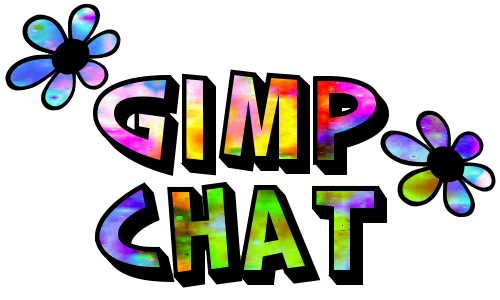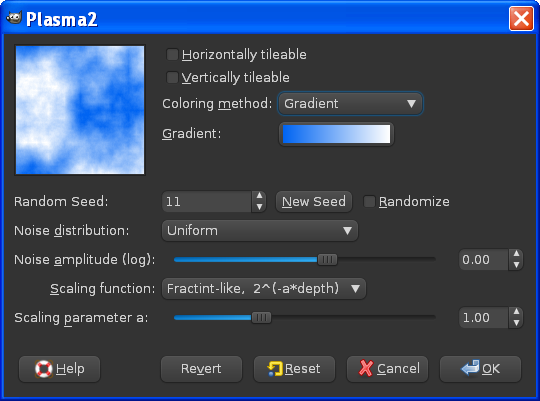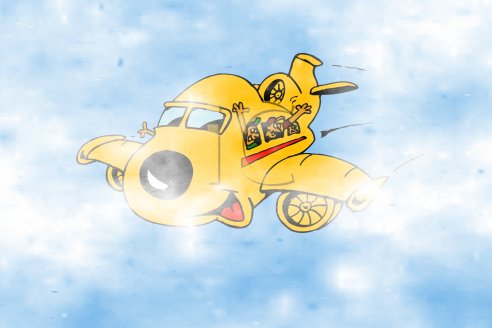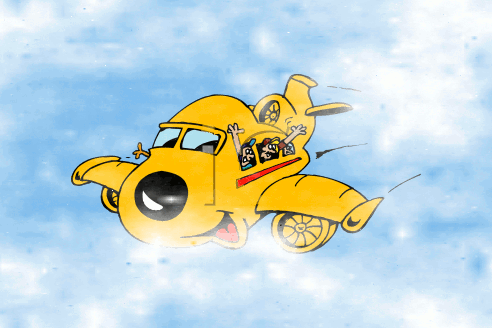Plasma 2 plug-in
Fri Sep 17, 2010 12:19 pm
Wood workshop is great, and the others I have never heard of, but will be checking them out!
I will find a link for the Plasma 2 Gimp plugin and post it. It is like the plasma plugin, but has the ability to make a seamless design.
I will find a link for the Plasma 2 Gimp plugin and post it. It is like the plasma plugin, but has the ability to make a seamless design.
Re: book???
Fri Sep 17, 2010 4:32 pm
Re: book???
Fri Sep 17, 2010 5:02 pm
PhotoComix, the link to the source code in your link is broken.
Re: book???
Fri Sep 17, 2010 5:36 pm
Aaargh!!i don't have a back up
..but looking the link http://flashingtwelve.brickfilms.com/GI ... 11.tar.bz2 , that seems Saulgood pages, so he may have a copy
..but looking the link http://flashingtwelve.brickfilms.com/GI ... 11.tar.bz2 , that seems Saulgood pages, so he may have a copy
Re: Plasma 2 plug-in
Fri Sep 17, 2010 10:24 pm
I actually have this plug-in it is uploaded to my MediaFire account here. =)
http://www.mediafire.com/?yim5nidwvdd
http://www.mediafire.com/?yim5nidwvdd
Re: Plasma 2 plug-in
Fri Sep 17, 2010 10:28 pm
Awesome work gang! Everyone working together!
Re: Plasma 2 plug-in
Fri Sep 17, 2010 10:32 pm
That's what i love about this forum, everyone cares about each other. =)
You can't find that in a lot of forums sadly.Bunch of great peoples here.
You can't find that in a lot of forums sadly.Bunch of great peoples here.
Re: Plasma 2 plug-in
Sun Sep 19, 2010 10:31 pm
O, I tested out the Linux Binary in the link you provided here and it seems to work fine in Fedora.

The only files in the RPM were the binary and some documentation.
plug-in installs itself in the Filters/Render/Clouds menu as `Plasma2'.
Linux users can just copy the plasma2 binary to their plug-ins folder and start GIMP'n.
Here's a zip with the Linux binary and docs in it.
Here's the readme..

The only files in the RPM were the binary and some documentation.
plug-in installs itself in the Filters/Render/Clouds menu as `Plasma2'.
Linux users can just copy the plasma2 binary to their plug-ins folder and start GIMP'n.
Here's a zip with the Linux binary and docs in it.
Here's the readme..
| plasma2 v2.9 (2004-04-28) GIMP plug-in generating plasma clouds
| Copyright (C) 1996 Stephen Norris <srn@flibble.cs.su.oz.au>
| Copyright (C) 2001-2004 Yeti (David Necas) <yeti@physics.muni.cz>
Plasma2 is an improved version of an old GIMP plug-in Plasma by Stephen
Norris generating cloud-like images known as `the plasma fractal'. The name
plasma2 is probably subject to further changes---it just has to be
distinguished from the original Plasma plug-in since it's not PDB-level
compatible.
Installation
------------
Requirements: Gimp 2.0 (use Plasma2-2.2 with Gimp 1.2).
Untar the tar file (well I guess you've got that far already), then in the
directory thus created type
make install
to install the plug-in to the system-wide plug-in directory, or
make install-user
to install it to your user plug-in directory. You can uninstall it later by
`make uninstall' or `make uninstall-user', respectively. When something goes
wrong, try modify the Makefile or, if you are really desperate, the source.
Usage
-----
This plug-in installs itself in the Filters/Render/Clouds menu as `Plasma2'.
It renders the famous plasma cloud fractals. All Plasma2 options are either
self-explanatory or extremely crypitc. You don't need to know what they
mean, just try to change them and you will see.
For the curious, a brief explanations follows:
* Horizontally tileable.
* Vertically tileable.
These options cause the image to be tileable, horizontally and/or
vertically. The result is different from running `Make Seamless' filter on
the image, because no averaging (leading to blurry image) is needed.
* Coloring method.
* Gradient.
For RGB images, you can choose between generating independent Red, Green
and Blue plasma channels, identical Red, Green and Blue channels (resulting
in a grayscale image) and coloring the image with some gradient. For
grayscale images, only grayscale output is possible, of course.
Note applying the gradient later, using `Map to gradient' filter, gives
slightly worse results than doing the same directly in Plasma2, especially
in case of gradients with very smooth or very abrupt color transitions.
* Noise distribution.
As you can guess, the whole thing is generated by adding some noise to an
originally smooth surface in color space. The noise distribution
determines probabilities of different deviation amplitudes. However, in
case of Plasma2, it doesn't influence the image appearance as much as one
may think.
* Noise amplitude (log).
This is just the reference noise amplitude. The only interesting thing
about it is that the scale is logarithmic (so you can change the amplitude
in range of approximately five orders).
* Scaling function.
Distant points of the image are completely uncorrelated. However, close
points has to be correlated somehow, otherwise we would get just
uninteresting noise. The scaling function determines, how the noise
amplitude decreases when you scale down. The `depth' parameter is
(something like) logarithm of the scale. `Fractint-like' is what is used
in all plasma fractal generators in the world, except the original Stephen
Norris Plasma plug-in, which used a completely different function, so I
named it after him ;-)
* Scaling parameter a.
This is the variable `a' in the Scaling function expression.
Mathematically, only a = 1 makes sense, but for the purpose of image
generation we can choose what we like.
Some details you don't want to know
-----------------------------------
Fractint plasma:
To generate what Fractint genrates as `plasma', set:
Scaling function = Fractint-like
Scaling parameter a = 1.0
Noise distribution = Uniform
You can still play with Noise amplitude, as in Fractint. The exact mapping
from Noise amplitude to Fractint Plasma Grainess is not know to me.
Stephen Norris's plasma:
To emulate original GIMP Plasma plug-in, set:
Scaling function = Norris-like
Scaling parameter a = 1.0
Noise distribution = Uniform
You can still play with Noise amplitude, as in the original plug-in. The
exact mapping from Noise amplitude to Plasma Turbulence is not know to me.
Fractalness and Hausdorf dimension:
To get a true fractal, you have to set:
Scaling function = Fractint-like
Scaling parameter a = 1.0
Then the resulting image can be interpreted a `surface' having dimension
between 2.0 and 3.0. When a > 1.0 the resulting dimension is 2.0 and all
other settings (including when Scaling function is not Fractint-like) lead
to objects with dimension 3.0 (though images rendered in finite resolution
may look pretty smmooth).
It's quite easy to compute Hausdorf dimension when it is between 2.0 and
3.0, provided that scale of the third axis (brigthness) is defined somwehat
(Hausdorf dimension is a metric property and thus depends on it, but it can
be remapped to some `normalized' scale). I just didn't foresee you would
want to know it ;-)
In case of RGB images viewed as `surfaces' in 5D space, the dimension is
between 2.0 and 5.0, but I didn't study this case much (it should be
similar).
Noise distributions:
Why I chosen uniform, Cauchy and one-side exponential and not distribution
XXX? As you know, due to Gauss law of big numbers, sums of all
`reasonable' distribution would tend to Gauss distribution---if the
contributions were not getting smaller and smaller. Practice shows, it
doesn't much matter whether we use Gauss, uniform, triangle, or whatnot
distribution, even in our case. This is however not true for Cauchy
distribution (it doesn't obey Gauss law of big numbers at all---because of
infinite second order momentum) and exponential distribution because it's
too asymmetric to have a chance to converge to something similar fast
enough. So they give interesting results [read: images] and I added them.
Scaling functions:
Fractint-like is the good, fractal, exponential scaling (provided a == 1)
and Norris-like is simulation of the original plug-in (provided a == 1).
They just have to be present. I added the parameter `a' to have something
more to play with. It has more-or-less no mathematical reason.
Authors
-------
The original Plasma plug-in has been written by Stephen Norris
<srn@flibble.cs.su.oz.au>, with improvements by Eiichi Takamori
<taka@ma1.seikyou.ne.jp> and Tim Copperfield <timecop@japan.co.jp>.
Some ideas, and perhaps some code, too, have been recycled by
Yeti (David Necas) <yeti@physics.muni.cz> in Plasma2.
Report bugs to <yeti@physics.muni.cz> (please include `plasma2' or `plasma'
in subject).
Copying
-------
Plasma2 can be copied and/or modified under the terms of GNU General
Public License. Please see COPYING for details.
Re: Plasma 2 plug-in
Sun Sep 19, 2010 11:48 pm
 Thanks GnuTux. It's ever so much nicer than Plasma.
Thanks GnuTux. It's ever so much nicer than Plasma.
Re: Plasma 2 plug-in
Mon Sep 20, 2010 5:39 am
yes it is much better then plasma i wonder why it did not become a standard replacement
Not sure if is just my taste but i almost always apply a bit of gaussian blur to the plasma..come out smoother
Not sure if is just my taste but i almost always apply a bit of gaussian blur to the plasma..come out smoother
Re: Plasma 2 plug-in
Mon Sep 20, 2010 12:32 pm
I love it because you can use your gradients to color the image...very sweet!


Re: Plasma 2 plug-in
Mon Sep 20, 2010 7:09 pm
Yours looks like a cloudy sky, Rod. Here's my try at plasma2 sky.


Re: Plasma 2 plug-in
Tue Sep 21, 2010 9:24 am
WooHoo! It's the Gimp Chat team going for a plane ride. =)
That's cool looking with the fogginess added.
That's cool looking with the fogginess added.
Re: Plasma 2 plug-in
Tue Sep 21, 2010 10:13 am
Actually the "fog" is the white clouds from Plasma2. I used blue and white as the bg & fg colors, used color to alpha to get rid of the blue and made a new layer of blue and sandwiched the airplane between the layers.
Re: Plasma 2 plug-in
Tue Sep 21, 2010 10:38 am
Nice job! =)
It looks like the plane is flying right through them.
It looks like the plane is flying right through them.
Re: Plasma 2 plug-in
Tue Sep 21, 2010 1:13 pm
Now you only need to animate it and you could start making kids videos! I'm a big kid and I would watch that!!
Re: Plasma 2 plug-in
Tue Sep 21, 2010 3:25 pm
Here ya go.PhotoMaster wrote:Now you only need to animate it and you could start making kids videos! I'm a big kid and I would watch that!!

Re: Plasma 2 plug-in
Tue Sep 21, 2010 3:35 pm
it seems the sky move but the plane stay perfectly still
I think you should move a bit the plane too... a few degree rotation ( as from 5 degree to 0 to -5...and looping )or even a slight movement up and down... should make the trick
I think you should move a bit the plane too... a few degree rotation ( as from 5 degree to 0 to -5...and looping )or even a slight movement up and down... should make the trick

